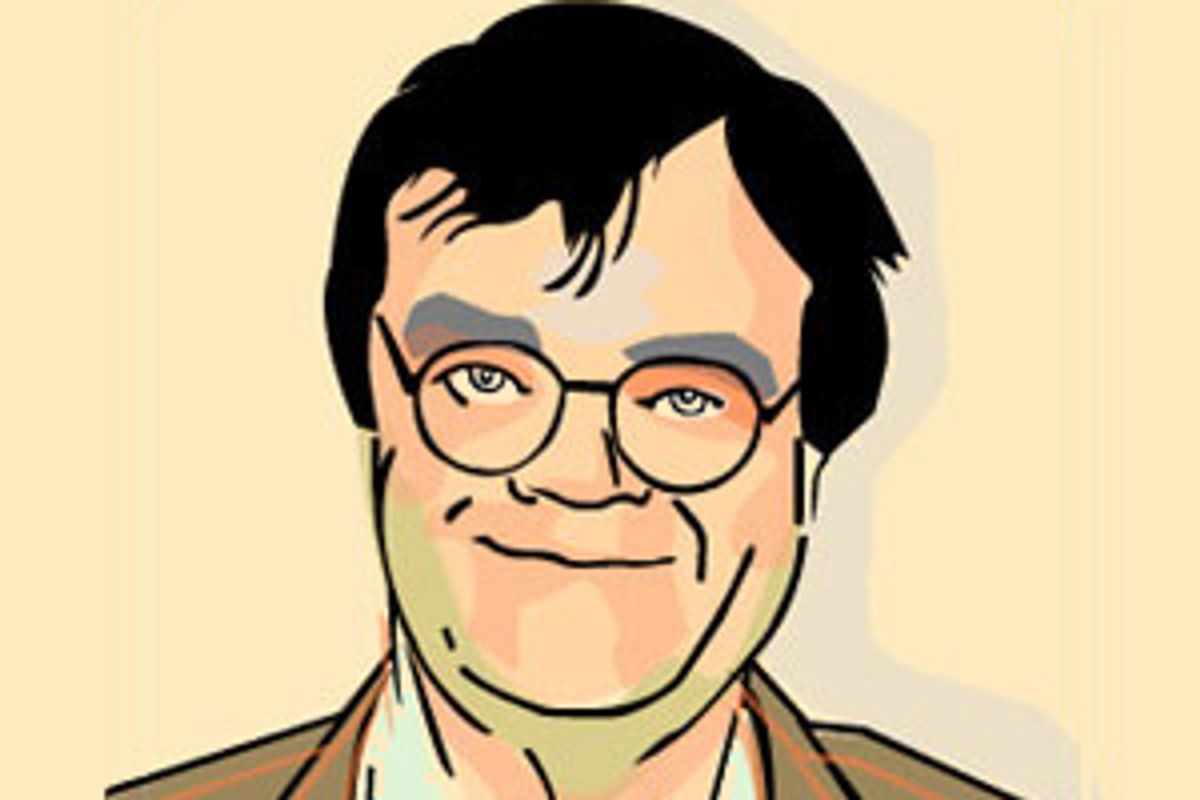February is the season of small sorrows when everyone feels middle-aged even if you are 16, but there are cures for this. One is skating and another is the convivial lunch. You meet three friends at the Chat 'N' Chew and order soup and a sandwich and you yak and yak and nobody tries to sell you aluminum siding and nobody unloads his sorrows or displays his trophies and nobody harangues you about politics. You tell stories. If things drift toward the ponderous or the maudlin, somebody tosses in a joke. If somebody launches into a lecture, you stuff a rag in him and get back to that beautiful contrapuntal conversation that is possible with friends. They are the people with whom you can be at your best, playful, extravagant, sarcastic, self-disparaging, semi-brilliant and ever buoyant.
My wife is the perfect lunch partner, being upbeat to start with and a keen social observer, so she can tell about her morning and make a novella out of it. And we know each other too well to orate or opine or waste time lamenting the Current Occupant. Like everyone else, we have a bad case of Bush fatigue. The very sound of the name, that little puff of breath and the shush, is an irritant. He is the not-too-bright brother-in-law who is employed doing something, you're not sure what, and meanwhile he's totaled your car four times. If he waved goodbye tomorrow and got on the bus to Crawford, everybody would feel better. But he got elected because he seemed convivial and Al Gore seemed pedantic and ill at ease.
Conviviality is no small achievement. Back when I was young, most major American writers seemed to be alcoholic or suicidal or both, and we students absorbed the notion that the true sign of brilliance is to be seriously screwed up. The true poet is haunted by livid demons, brave, doomed, terribly wounded, and if one was (as I was) relatively unscratched, you concealed this and tried to impersonate doom.
The prime minister of high culture was T.S. Eliot, who suffered from a lousy marriage and hated his job and so wrote "The Love Song of J. Alfred Prufrock," a small, dark mopefest of a poem in which old Pru worries about whether to eat a peach or roll up his trousers. This poem pretty much killed off the pleasure of poetry for millions of people who got dragged through it in high school. The first line of "Prufrock," as you may recall, was "S'io credesse che mia risposta fosse" -- he opened with six lines of a language 99 percent of his readers do not understand! How better to identify yourself as a serious poet than to be incomprehensible?
So the best minds of my generation skipped poetry and became historians or went into business or took up farming. Who would make a career out of pretending to be crippled? And they sensed that, in the poetry biz, there is not much conviviality. (They were right.)
The problem with liberals in our time, even though we'd like to think we're riding high at the moment, is that we're not so much fun to eat lunch with. We carry an air of self-righteous sorrow about hunger, global warming, homelessness, tax inequity, the heartlessness of big corporations, and a list of crises as long as your arm. You eat lunch with a liberal and you are ashamed to order dessert. The basic message of liberalism is simply: The true measure of a society is how it treats the weak and the needy. A simple Christian message ("Inasmuch as ye have done it unto one of the least of these my brethren, ye have done it unto me." Matthew 25:40), but when you place it alongside the consumer carnival and the raunch and razzmatazz of pop culture, it sounds joyless.
But the Republican Party has a harder row to hoe. It is the captive of people who believe that most of us are destined to spend eternity in hellfire, and when you believe that, you will inevitably find it hard to persuade the damned to vote for you. You take a Republican to lunch and he is obligated to bring out a big black book and open it to Revelations and tell you that the beast with 10 horns is Hillary Clinton. Who is, I understand, good to have lunch with, and if she can convey this to the electorate at large, we will see much more of her in the future.
(Garrison Keillor's "A Prairie Home Companion" can be heard Saturday nights on public radio stations across the country.)
(c) 2007 by Garrison Keillor. All rights reserved. Distributed by Tribune Media Services, Inc.



Shares